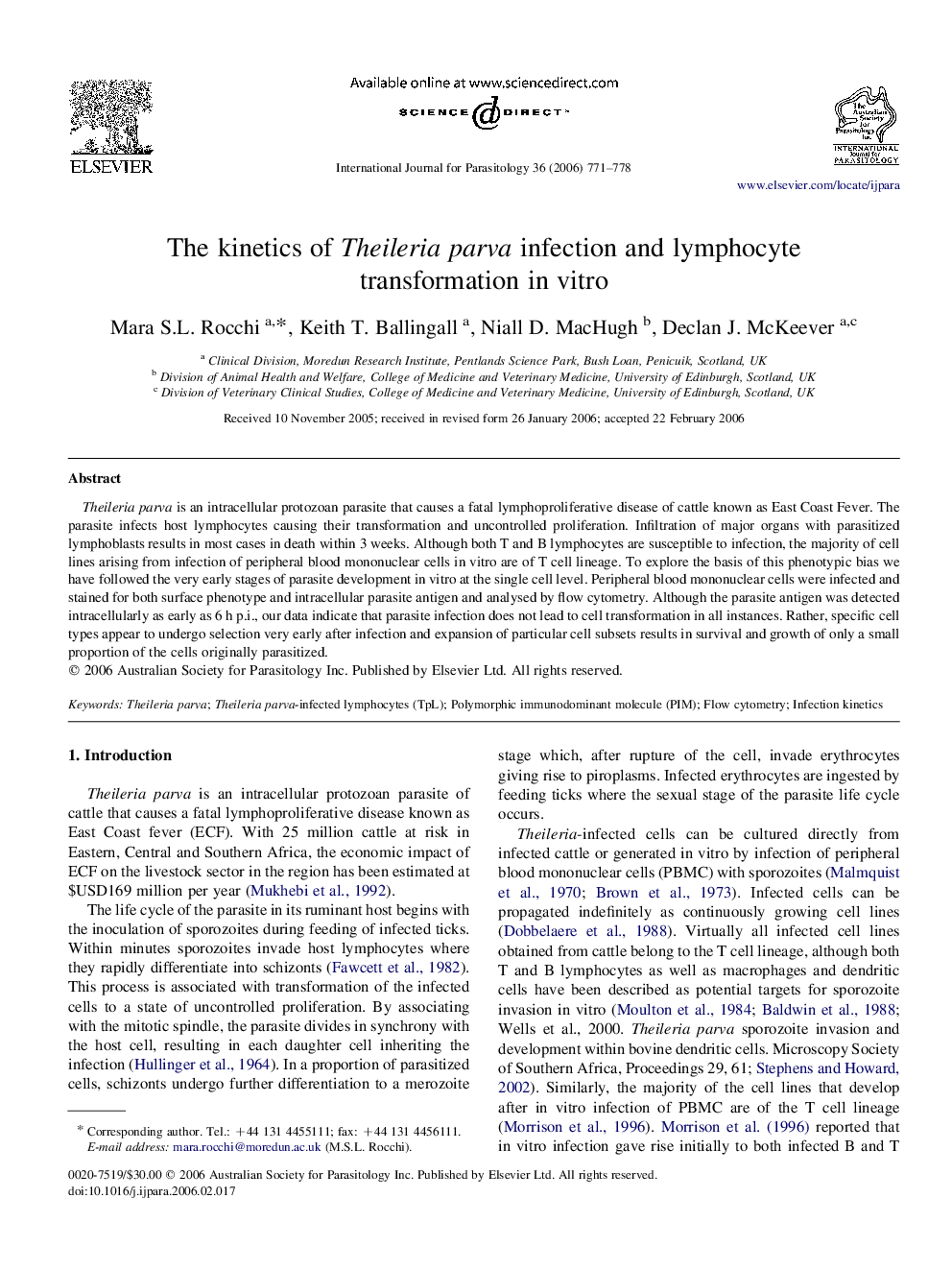| Article ID | Journal | Published Year | Pages | File Type |
|---|---|---|---|---|
| 2437022 | International Journal for Parasitology | 2006 | 8 Pages |
Theileriaparva is an intracellular protozoan parasite that causes a fatal lymphoproliferative disease of cattle known as East Coast Fever. The parasite infects host lymphocytes causing their transformation and uncontrolled proliferation. Infiltration of major organs with parasitized lymphoblasts results in most cases in death within 3 weeks. Although both T and B lymphocytes are susceptible to infection, the majority of cell lines arising from infection of peripheral blood mononuclear cells in vitro are of T cell lineage. To explore the basis of this phenotypic bias we have followed the very early stages of parasite development in vitro at the single cell level. Peripheral blood mononuclear cells were infected and stained for both surface phenotype and intracellular parasite antigen and analysed by flow cytometry. Although the parasite antigen was detected intracellularly as early as 6 h p.i., our data indicate that parasite infection does not lead to cell transformation in all instances. Rather, specific cell types appear to undergo selection very early after infection and expansion of particular cell subsets results in survival and growth of only a small proportion of the cells originally parasitized.
